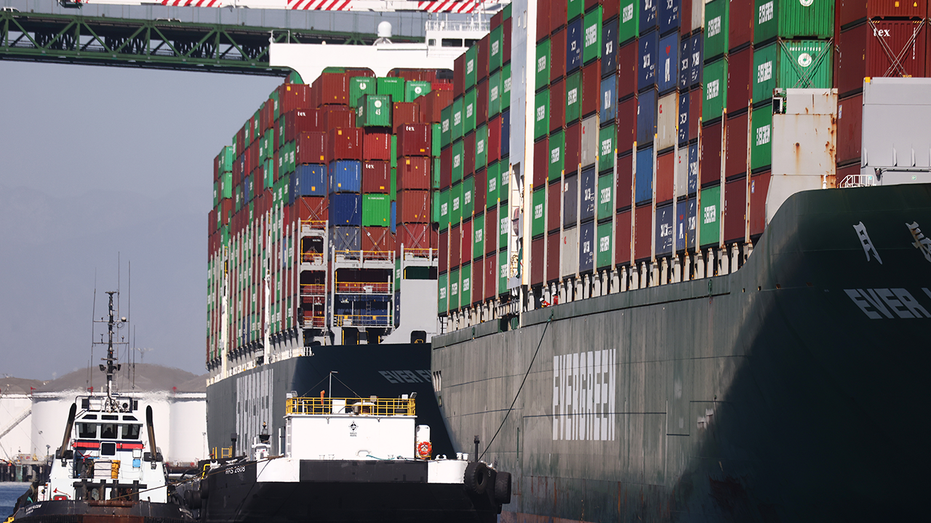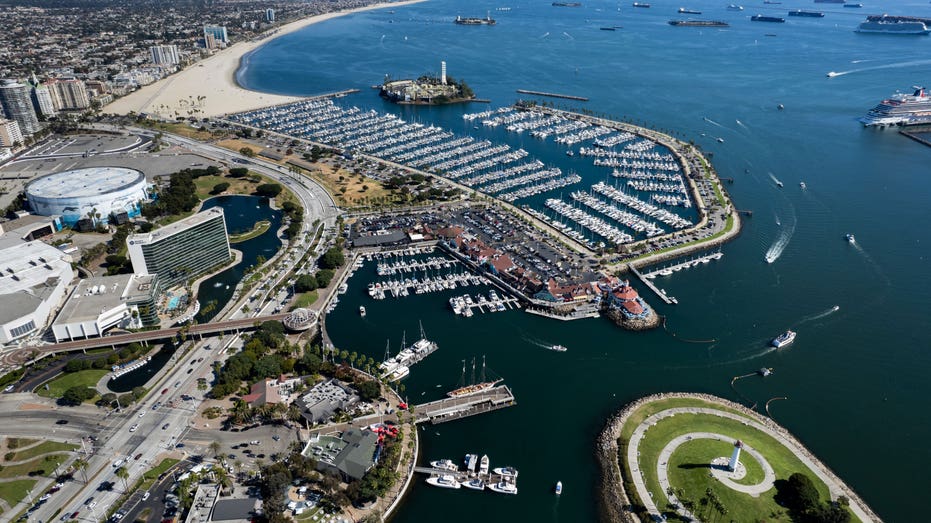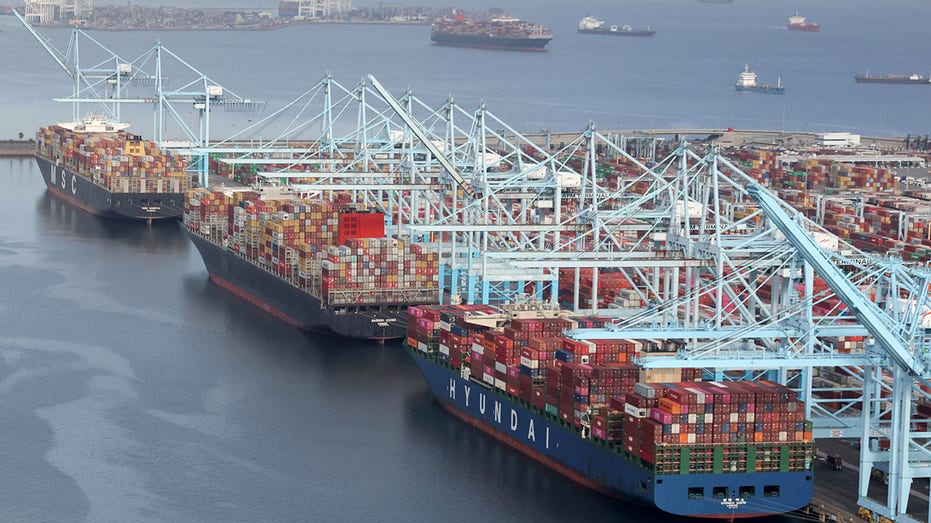Del Monte produce raising prices in response to 'unprecedented market conditions' and 'inflationary pressures'
The company calls the move 'necessary' to combat inflation
Rep. Smith: Democrats adding fuel to inflation fire with reckless spending
House Budget Committee member discusses the massive spending bill on 'FOX Business Tonight'
The Del Monte produce company has announced that it will be raising costs on certain products in response to "unprecedented market conditions" and "inflationary pressures."
"Despite our efforts to mitigate these increasing costs within our supply chain, they are simply too great to absorb," the company’s Chairman and CEO Mohammad Abu-Ghazaleh said in a press release. "The unparalleled costs have been persistent and show no signs of regulating."
FED PREPARES TO BEGIN TAPERING ASSET PURCHASES AS INFLATION SURGES
"After thoughtful consideration, it is necessary to implement inflation-justified price increases in an effort to maintain our continuous supply and service levels," the statement added. "We understand that these pressures are not unique to our business and therefore are working collaboratively to mitigate these pressures – within our supply chain and with our business partner relationships."

Cargo containers sit stacked on container ships at the Port of Los Angeles, the nation’s busiest container port, on October 15, 2021 in San Pedro, California. As surging inflation and supply chain disruptions are disrupting global economic recovery, (Getty Images)
The move, the company says, "comes in response to unprecedented market conditions and inflationary pressures being felt across all industries, affecting Fresh Del Monte particularly as it relates to production and supply chain."
The global supply chain has been buffeted by a multitude of problems, from factories having to close due to COVID-19 surges, a lack of containers to ship items in, backups at ports and warehouses, and a shortage of truckers.
Meanwhile, prices are rising due to a surge in shipping costs. At this time last year, ocean freight rates from China to the U.S. West Coast were $3,847 per 40-foot container. Now, the same container will cost $17,377 to ship, according to Freightos, a Hong Kong-based online freight marketplace.
The backlog has left dozens of ships anchored in the Pacific Ocean and store shelves across the country empty, and experts say every step in the supply chain is experiencing its own challenges.
Ports have been front and center in the discussion of supply chain backlogs, where dozens of ships are off the California coast waiting to unload their cargo at the Ports of Long Beach and Los Angeles.

LONG BEACH, CA - OCTOBER 16: Aerial view of container ships waiting to enter and unload at Port of Long Beach on October 16, 2021 in Long Beach, California. (Photo by Qian Weizhong/VCG via Getty Images / Getty Images)
Many products that come into U.S. ports are transported across the country via railroad, and AAR's Gray said that backlogs in other areas of the supply chain have negatively impacted his industry’s ability to deliver products.
Gray cited an "unprecedented" volume of products moving through the supply chain, as well as worker shortages, as creating a backlog and preventing products from reaching their destination.
The worker shortage that has plagued nearly every industry in the United States has resulted in a shortage of 80,000 truck drivers, according to the American Trucking Association.
This, along with worker shortages through the supply chain, has created the "perfect storm," California Trucking Association CEO Shawn Yadon told FOX Business’ Maria Bartiromo.
LARRY SUMMERS, JANET YELLEN CLASH OVER INFLATION FEARS
Like other industry leaders, Yadon said there is no one silver bullet that will clear the backlog. "The solution overall has to be from every stakeholder in the supply chain," he said, noting each industry must be "synchronized.
Eric Hoplin of the National Association of Wholesaler-Distributors said his industry represents a third of the U.S. economy, but like many others, is facing serious staffing shortages that could be made worse by Biden’s vaccine mandate.
"Everybody is having trouble finding a lot of people to work, and everyone is having trouble with retention," Hoplin told Fox News Digital.

FILE PHOTO: Shipping containers are unloaded from ships at a container terminal at the Port of Long Beach-Port of Los Angeles complex, amid the coronavirus disease (COVID-19) pandemic, in Los Angeles, California, U.S., April 7, 2021. REUTERS/Lucy Nic (REUTERS/Lucy Nicholson/File Photo)
For many exporters, the inability to get supplies into the country also means difficulties getting products out of the country, according to California Business Roundtable President Rob Lapsley.
He called exporting "the other half of the crisis," and noted that agricultural exporters are "almost in a panic."
GET FOX BUSINESS ON THE GO BY CLICKING HERE
According to recent reports, almost all the elements needed for Turkey Day dinners are increasing in price — including turkeys themselves.
On Friday, the U.S. Department of Agriculture released its "Turkey Market News Report," which found that turkeys between eight and 16 pounds are about 26 cents more per pound than they were last year.
As a result of the rising cost of food, Thanksgiving is expected to cost 4% to 5% more this year compared to last year, CBS reported.
Fox News' Daniella Genovese, Ana Schmidt, Kelsey Koberg, and the Associated Press contributed to this report




















